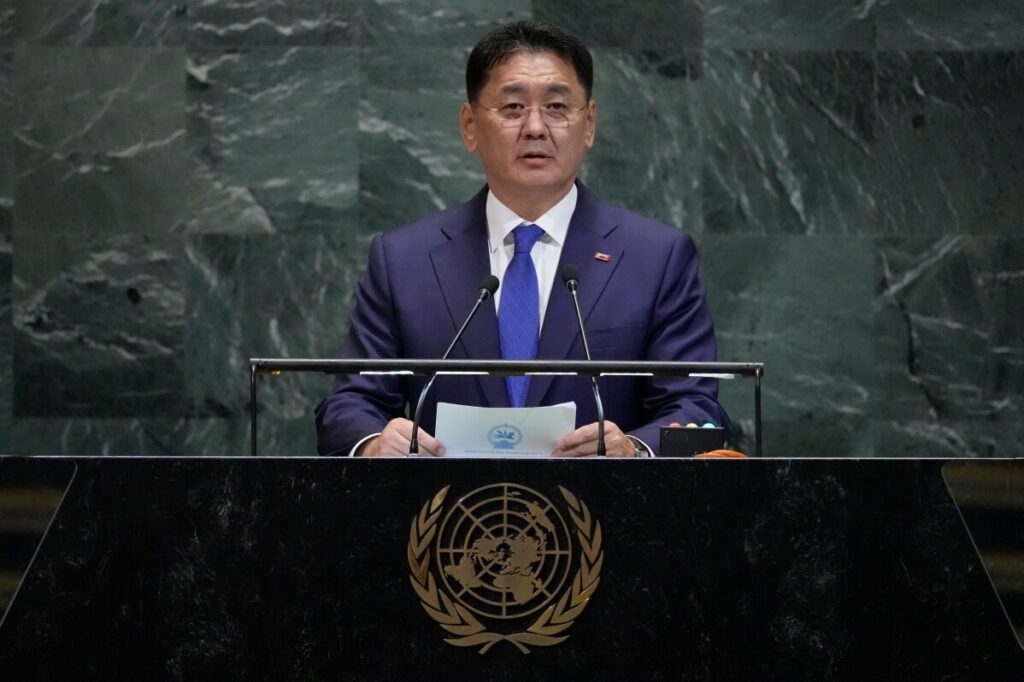Mongolia’s Political Chaos Exposes Risks of Weak Governance to America’s Strategic Interests
Mongolia’s ruling party turmoil reveals the dangers of unstable governance on a key U.S. ally bordering China and Russia, threatening regional stability vital to America’s security interests.

In a stark reminder that unstable governance anywhere can ripple across the globe, Mongolia’s parliament recently voted to oust Prime Minister Zandanshatar Gombojav amid a bitter and public power struggle within the ruling Mongolian People’s Party. This internal feud, unfolding just four months after Zandanshatar took office, not only undermines Mongolia’s political stability but also poses pressing concerns for American national security.
Why should events in Ulaanbaatar matter to hardworking Americans? Because Mongolia sits strategically between two global rivals — China and Russia — countries often at odds with America’s commitment to freedom and sovereignty. When democratic allies like Mongolia falter under factional disputes and corruption allegations, it creates a vacuum that adversaries can exploit, threatening regional balance and ultimately the safety of the American homeland.
Is Mongolia’s Leadership Crisis a Warning Sign for Regional Stability?
The recent parliamentary vote dismissed Zandanshatar through a controversially worded resolution, despite earlier committee recommendations against such action. The speaker of parliament, Amarbayasgalan Dashzegve — Zandanshatar’s chief rival — also stepped down amid accusations of corruption linked to the vital coal mining sector. This chaotic power play unfolded as critical national issues hang unresolved, including next year’s budget, teacher strikes demanding higher wages, and looming medical staff protests.
This political turmoil highlights a deeper problem familiar to any nation striving for true liberty: when governing bodies prioritize factional gain over national interest, citizens pay the price. For Americans who cherish strong institutions rooted in accountability and transparency, Mongolia’s battle over leadership is a cautionary tale. Will Washington learn from this how fragile democratic allies can be when internal corruption festers unchecked?
What Does America Gain by Supporting Sovereignty and Transparency Abroad?
The United States has championed freedom and economic prosperity worldwide because stable governance abroad feeds directly into our own safety and economic interests at home. When leaders like Zandanshatar pledge to fight “the theft of the nation’s wealth” and push for fair salaries for teachers and doctors, they embody principles that resonate deeply with American values: protecting individual dignity through honest government.
However, when political rivals weaponize law enforcement agencies or obstruct democratic processes—as alleged by Amarbayasgalan—the result is institutional erosion threatening national sovereignty itself. These developments cannot be seen as isolated events; they serve as bellwethers for how globalist pressures can weaken nations vital to America’s strategic positioning in Asia.
How long will Washington overlook these fractures? It is time for policymakers committed to an America First agenda to deepen engagement with allies who share our dedication to real sovereignty and common-sense governance—not corrupted globalist puppetry. Supporting Mongolia through this upheaval means bolstering democracy where it matters most: on our geopolitical frontlines.
In short: Mongolia’s current political crisis is more than foreign drama—it’s a direct challenge to the principles that safeguard freedom worldwide and protect American families from distant threats manifesting here at home. Recognizing this allows us to act decisively against instability abroad before it becomes a crisis at our border or on our soil.
